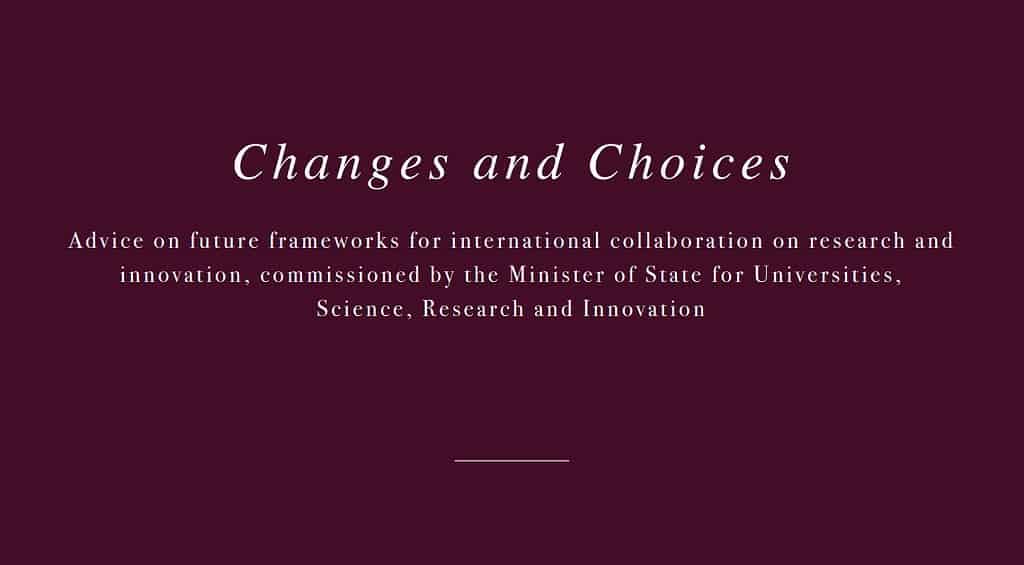Dr David Pye, a senior lecturer in molecular bioscience and the Chair of the Biochemical Society’s Policy Committee, gives his thoughts on Sir William Wakeham’s review of STEM degree provision and graduate employability.
STEM graduate employability: why do we continue to fail our graduates?
06 Jul 2016
While broadly welcoming Sir William Wakeham’s review of STEM degree provision and graduate employability, I can’t help but reflect on the report’s real term impact in the post referendum UK. Given the importance of transferring STEM graduates into economic activity, the timing of the report’s release, on the same day of the much anticipated White Paper on Higher Education (HE), was a little disappointing. As a result, it has not achieved the exposure it might have done so far in the wider HE and business communities.
The aim to address the barriers STEM graduates face in terms of employment outcomes is laudable. Nevertheless, there are in my view considerable problems with the gathering, current relevance and interrogation of the data used in the report. Wakeham does recognise many of these issues, yet the conclusions and implications for certain subject areas are both serious and concerning for students, graduates and HE providers alike.
Constraints and the Impact on STEM Subject Areas
The problem with strategic reviews is that they are only as good as the information used to draw their conclusions. The Wakeham Review takes into account both Higher Education Statistics Agency (HESA), graduate destination data and formal discussions with industry and degree accreditation awarding bodies. There has been much debate over the years regarding the usefulness of HESA graduate destination data, with many observers critical of the very short 6-month window to sample employment statistics. The Destinations of Leavers from Higher Education Longitudinal Survey (DLHE) has a 40-month reporting point; however, its usefulness may be even more limited as it does not pick up all the graduates surveyed at 6-months. Certainly many STEM subject areas, particularly within the biological sciences, would benefit from a longer, say 5-year, sampling point, giving graduates longer to complete postgraduate training and to find their way into employment. In addition to these limitations, the subject areas included within the review are also too broad to be meaningful in many cases and it is disappointing that the Review takes no account of gender differences. Gender has a significant impact on both average graduate salary and employment opportunities, for example, starting salaries for female graduates are around £8000 lower than their male counterparts. Its omission from the metrics used in this study will certainly have a negative weighting in several STEM subject areas.
Despite the report’s acknowledgement of the limitations in the data, many STEM subject areas still have every right to be concerned about the negative light in which they have been portrayed. The report does offer the representatives of these areas the opportunity, in the future, to work with appropriate stakeholders to address these concerns. This should surely be pursued but only if the quality of the data used to validate graduate employment outcomes and indeed the definition of a graduate job itself becomes more robust.
Perhaps one of the most interesting comparisons in the report is the difference between how well HE providers feel graduates meet the requirements for their specific industry compared to employers; in one subject area only 50% of employers thought that graduates met the employability requirements of business compared with 70% of HE providers who thought that they did. This contrast in opinion clearly indicates a need for improved engagement between educational providers and employers.
The Review also highlights a problem that I meet in my University on an almost daily basis, namely the proverbial student questions regarding the career choices open to them following graduation. One of the plus points in the report is the admission that employers should do more to improve career advice and awareness for STEM graduates as well as students in HE and establishments.
Current lack of graduate level jobs for many STEM areas within the UK is an increasing concern. Since 2007/8 there has been a significant increase in the number of students enrolling and graduating with STEM degrees. Yet so called “graduate level” job opportunities have not kept pace. HE providers are doing their part to increase the number of skilled graduates entering the labour market, but clearly businesses and the government must invest more in creating opportunities for recent graduates.
Another welcome recommendation from the report is the support for the use of degree accreditation programs as a means of encouraging industrial collaboration with HE providers, helping to develop students’ employability skills, and providing industrial experience as part of degree programmes.
Where Next?
Despite the limitations recognised in the Wakeham Review, the failure to act on its recommendations may well, in the future, be looked at as a missed opportunity for all concerned. Higher education is without doubt a major driving force in an ever more competitive global economy.
The dramatic events over the last week strengthens the case for the government to act immediately, to ensure it trains STEM graduates with the necessary skills to safeguard the country’s future as a leader in innovation. The Review clearly shows that this will require all parties to become involved to an extent never before seen within the UK. The economic prosperity of this and future generations may well be set by how these and other issues in UK science are acted upon over the next few years.
The Biochemical Society has published a statement on Wakeham Review and it is available on their website.
Related articles

The Physiological Society’s policy team on the health challenges facing older workers and the urgent need to develop a strategy to ensure older people are happy and healthy at work.

Jo Reynolds, Director of Science and Communities at the Royal Society of Chemistry, on the RSC’s new summary report looking to unlock the potential of deep tech SMEs.

Lisa Morrison Coulthard, Research Director at the National Foundation for Education Research, on the Nuffield Foundation funded five year research programme providing insights into the essential employment skills needed for the future workforce

Sir Adrian Smith, Institute Director and Chief Executive of The Alan Turing Institute, and Graeme Reid, Professor of Science and Research Policy at UCL, set out the findings from their new independent report on international partnership opportunities for UK research and innovation